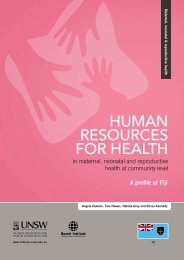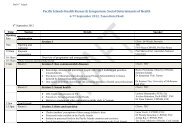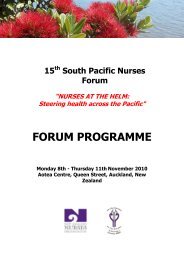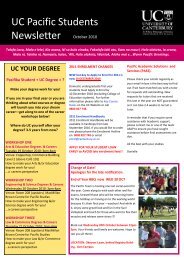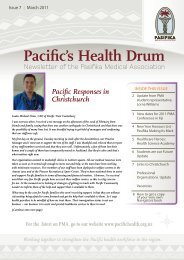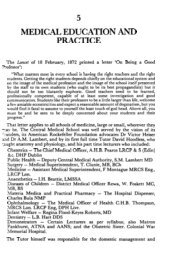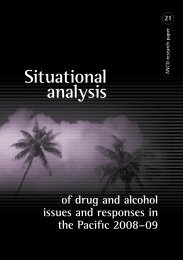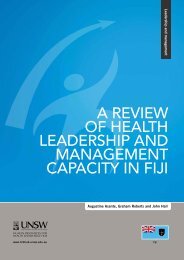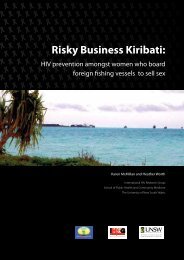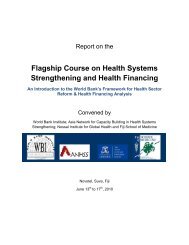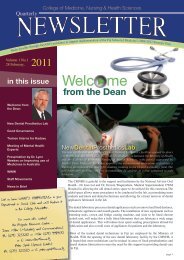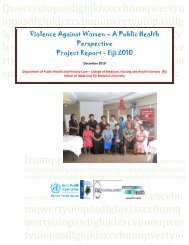rp21 situational analysis - Pacific Health Voices
rp21 situational analysis - Pacific Health Voices
rp21 situational analysis - Pacific Health Voices
You also want an ePaper? Increase the reach of your titles
YUMPU automatically turns print PDFs into web optimized ePapers that Google loves.
13.4 Licit drug trends<br />
As with illicit drug use, there is no published<br />
research specifically considering alcohol use<br />
trends and its impacts. However, alcohol use<br />
is highlighted as a key concern among gangs<br />
and as a contributor to domestic violence. 749<br />
The link between alcohol and domestic violence<br />
was highlighted, with around a third<br />
of reported domestic violence cases linked to<br />
alcohol. 750 This issue was highlighted in 2004<br />
and continues to be reported in the ‘gang’<br />
context. In a 2006 WHO report on alcohol<br />
control policies in the Southeast Asia region,<br />
no data were available for Timor-Leste. 751<br />
However, the WHO Global Status Report on<br />
Alcohol 2004 shows a dramatic decline in per<br />
capita pure alcohol consumption, but data<br />
were recorded only until 1977. 752 The 2009<br />
PDARN delegate also highlighted as emerging<br />
concerns an apparent increase in ‘abuse’<br />
of legal sedative drugs, consumption of traditional<br />
homebrew (tuak sabu) and drinking<br />
non-beverage alcohol (disinfectant).<br />
Analogous to the situation in the Solomon<br />
Islands, the contribution of high levels of<br />
international security and law enforcement<br />
personnel to substance use patterns should<br />
not be overlooked. Recent media reports cite<br />
the repatriation of personnel after being<br />
discovered drunk on duty. 753 No official data<br />
relating to consumption patterns among<br />
these groups have been identified, but this<br />
influence is considered to be of relevance.<br />
13.5 Local responses<br />
While Timor-Leste has been included in this<br />
<strong>Pacific</strong> regional <strong>analysis</strong>, it is not represented<br />
on any of the regional forums, including the<br />
Secretariat of the <strong>Pacific</strong> Community, the<br />
<strong>Pacific</strong> Islands Forum Secretariat, the <strong>Pacific</strong><br />
Islands Law Officers’ Network, the Oceania<br />
Customs Organisation and the <strong>Pacific</strong> Islands<br />
Chiefs of Police. In contrast to the other<br />
countries considered as part of this <strong>analysis</strong>,<br />
Timor-Leste is included under the South-<br />
East Asia Regional Office of WHO and is<br />
not a beneficiary under any of the <strong>Pacific</strong><br />
regional programs funded by Australia.<br />
Legislation<br />
Timor-Leste is not listed as a signatory to<br />
any of the key UN conventions on drug control<br />
but there are plans to ratify the 1971<br />
Convention (see Appendix 18.3: <strong>Pacific</strong> participation<br />
in United Nations conventions<br />
and treaties for details). Timor-Leste participates<br />
in the Judicial System Monitoring<br />
155<br />
749 G. Kruk (2004), Post-Conflict Rehabilitation in East Timor: conflict sensitivity as crosscutting<br />
issue within a food security programme. Dili: GTZ Governance and Democracy Sector<br />
Programme (Crisis Prevention and Conflict Transformation).<br />
750 Timor-Leste: Abortion laws in spotlight. IRIN (Humanitarian news and <strong>analysis</strong> service of<br />
the UN Office for the Coordination of Humanitarian Affairs), 18 March 2009. Available at:<br />
(accessed May 2009).<br />
751 WHO (2006), Alcohol Control Policies in the South-East Asia Region: selected issues.<br />
Alcohol Control Series no.3. New Delhi: WHO Regional Office for South-East Asia.<br />
752 Country profile for Timor-Leste in WHO (2004), Global Status Report on Alcohol 2004: South-<br />
East Asia Region. Geneva: WHO.<br />
753 Soldiers drunk on duty in East Timor. New Zealand Herald, 15 December 2008, available at:<br />
<br />
(accessed February 2009).<br />
Timor-Leste



